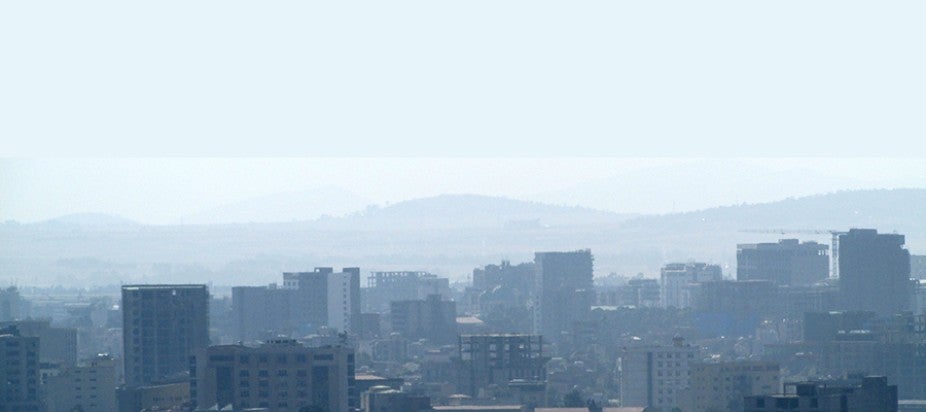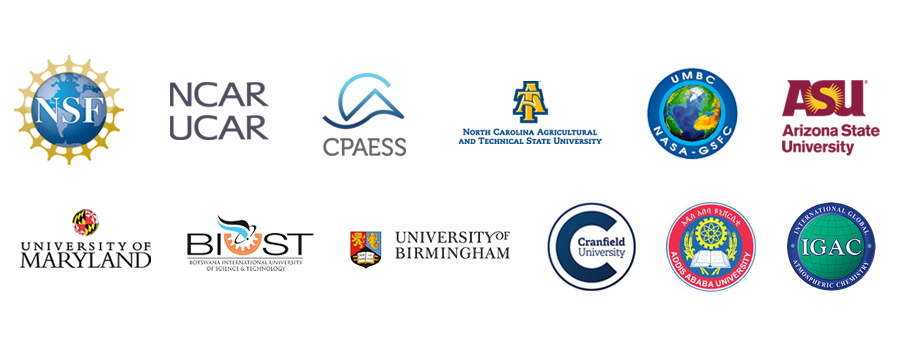Workshop on a Pilot Design for Air Quality in Africa
(Focused on Addis Ababa, Ethiopia)

6:00 – 6:00 pm MDT
This workshop is by invitation only.
A Virtual Meeting
About the Workshop
Air quality is a serious issue affecting health, mortality, and human productivity in the megacities of Africa. Africa is the least studied region of the world and air quality research in African megacities has received very little attention from the global atmospheric chemistry community relative to other regions. For example, the successful application of advances in atmospheric chemistry in improving air quality in the US has been applied in improving air quality in Mexico City. However, this success did not extend to other areas such as parts of Africa, where indoor and urban air quality remain poor and the depth of air quality problems is largely unquantified. Urbanization, coupled with increased industrialization, growing ownership of motor vehicles, and continued use of biomass as domestic energy source, may lead to a substantial worsening of air quality not only in large African cities, but also across the continent. This proposed workshop will bring together experts from the U.S., Ethiopia, and Europe to develop a roadmap for future research to advance the fundamental understanding of emitted chemical species, particulates, and formation of secondary organic and inorganic aerosol. The workshop will formulate research methodology and measurement approaches to understand the long-range transport mechanisms that control the spread of pollution in highly polluted emerging megacities in Africa, such as Addis Ababa, Ethiopia, and their impact on rural areas downwind.
Topics for Discussion
The overarching science question to be discussed in this workshop is: What are the unique reactive volatile organic compounds (VOCs) their sources and their influence on O3-NOx-VOC-PM chemistry that is different from well-studied regions of the world?
Subtopics include:
1.a. To what extent do natural emissions contribute to atmospheric composition, and how does the natural background interact with the unique anthropogenic source from Addis Ababa.
1.b. What are the unique VOCs and atmospheric chemical processes in the multi-pollutant and multiphase urban environment of Addis Ababa that control the abundance and production mechanisms of O3 PM2.5 brown carbon and secondary organic aerosols?
1.c. What are the roles of VOCs and inorganics such as NH3, sulfate and nitrate in the formation mechanisms of regional haze and reduction in visibility?
The following questions related to measurement techniques will be discussed:
2.a. What are the best ground based analytical approaches for quantifying trends in emissions and developing emission inventories and quantifying emission trends from African megacities using available satellite data?
2.b. What is the maximum achievable accuracy for low cost air pollution monitoring networks in environmental conditions typical of Africa, and is this accuracy sufficient to support air quality management decision making?
Workshop Objectives
- We will help define methods to (1) quantify the current state of air quality and future trends in emissions from a severely under-sampled region of the world and understand their impacts on atmospheric composition and chemistry over multiple scales, from local to global, and (2) identify the observational and modeling requirements for a rigorous experimental design which enables addressing the research questions and challenges posed by conducting field work in a unique and largely undersampled region of the world.
- We will provide recommendations on economically viable and scientifically appropriate air quality monitors, their deployment, maintenance, and calibration.
- We will also examine perceived logistical problems for the deployment of measurement resources by US and European researchers and will aim to find ways to overcome them by cultivating networks that engage government agencies, key policy makers, and leading scientists in the host African megacity and other international groups working on the issue.
